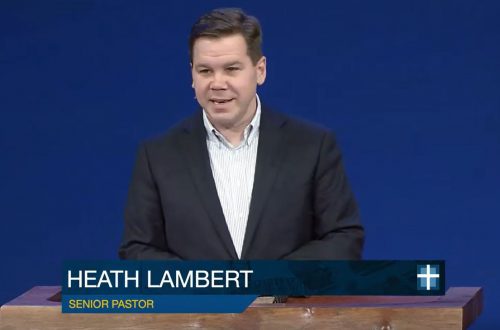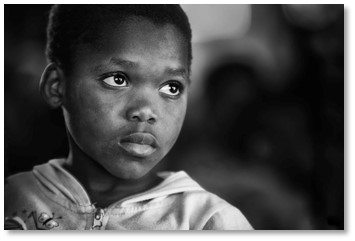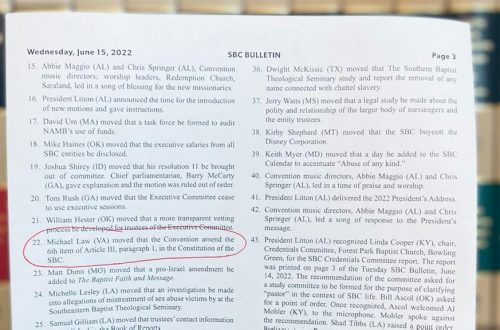Pope Francis announced today that John Paul II and Pope John XXIII will be recognized as saints on April 27, 2014. How does someone achieve sainthood in the Catholic Church? In short, they need to have lived a holy life and to have performed two miracles. It turns out that both of John Paul II’s miracles occurred after he died. It is reported that on two occasions people prayed to Pope John Paul II and were healed. Apparently, Pope Francis is going to recognize John XIII as a saint without evidence of a miracle to his account. Read the rest here, or watch above.




17 Comments
Ian Shaw
What exactly does it mean to live a holy life? I mean, the NT is pretty clear that even our best works, to God are considered ‘dung’ and something that is pretty disgusting (if you translate the Greek properly).
For a miracle, wouldn’t JP2, need to be alive to have performed it? I’m really trying not to bash in any way shape or form, but it is a struggle at times.
Mark Applegate
Our righteousness is alien to ourselves…I am more concerned as to whether someone who was trying to work their way to heaven (Eph. 2:8-10) had the right wedding garment on when he died.
Aaron A. Smith
Praying to a human, dead or alive, seems problematic.
Ian Shaw
^^^What he said
Kamilla Ludwig
Catholics view “prayer to” in the same way we view intercessory prayer. You are asking someone to intercede with God on your behalf and, to Catholics, it matters little whether the person is still walking the earth or has joined the Church Triumphant.
The miracles that become part of the process of canonization are always posthumous and occur through the intercession of the person prayed to.
It might also be of interest to note that the date chosen is designated Divine Mercy Sunday. The Chaplet of Divine Mercy, pleading with God to show mercy to us and the whole world, came from St. Faustina who was canonized by JPII.
Ian Shaw
Kamilla, call my understanding of the Bible ignorant, but I’m pretty sure that the only person that can intercede on our behalf before God would be His son Jesus. I know, I only had an OT and Gospel & Acts course at the small Christian university I attended and I’m sure the SBC chuirch I attend is way out in left field,…but I’m pretty sure the only person that can intercede on our behalf is Jesus (the sunday school answer applies here).
Kamilla Ludwig
Ian,
Well I only have an MA from the sort of Evangelical seminary that has sold its soul to the feminist heresy so I guess we’re even on that score, eh?
If that is the case, I’m guessing you never ask anyone else to pray for you.
James Stanton
Intercessory prayer is not the story here though. She prayed to a photograph of John Paul II as opposed to asking him personally to pray for her. The news reports about this event also indicate that her family had built an altar or shrine of some kind to the Pope.
Ian Shaw
Oh, I’ve asked plenty of people to pray for me, but in each and every case, they were praying to God directly, not man (or woman) alive or dead.
That feminist heresy will get you every time…..what do you think about Paul?
Kamilla Ludwig
Exactly, Ian. That’s what Catholics are doing!
James Bradshaw
As a lapsed Catholic, I can say that there is a certain element within the denomination (mostly elderly and mostly on the lower end of the economic scale) that tends to see some sort of “magic” in plaster statues and portraits of saints. It’s more a manifestation of superstition than religious faith.
Most of these people are also devoted to supposed Marian apparitions as well (which always seem to involve messages that are either without substance (i.e., Medjugorje) or which involve dire warnings of an imminent apocalypse that never ends up occurring).
I don’t see malice in any of this. It’s often simply a result of people trying to gain some sort of certitude and comfort within a difficult and painful life.
However, it’s not really part of official Catholic doctrine which (as Kamilla noted) asserts that the saints simply serve as fellow believers who are offering prayers on our behalf.
marie peterson
God proclaimed me a saint in 1994, as faith Christ was accounted to me for righteousness, having been united to the One who lived a perfect life and defeated sin and death, among many other miracles!
Paul Reed
“Praying to a human, dead or alive, seems problematic.”
And yet a central doctrine of the church is that Jesus was fully human (as well of course fully God).
Aaron A. Smith
Jesus being fully God is an important distinction. Pope John Paul II was a follower of God, not God at all, no offense intended. Mr. Bradshaw pointed out that Catholics have varying levels of belief regarding magical properties and superstition. I’m sorry for any unintended generalization.
Daryl Little
To be clear, Jon Paul II wasn’t a follower of God at all although he certainly believed himself to be.
The very idea that some make it right into the presence of God because they lived so well, while others must be punished for their sins because Jesus couldn’t quite get it done on the cross is pure evil.
Add to that the on-going sale and otherwise procured indulgences which allow one to draw on the excess merit of men like John Paul (because he was sooooo good that he didn’t need all of his goodness to get to heaven) and so shorten ones time in the flames of purgatory…and you have pure paganism.
The whole idea of sainthood reminds me of the Danish myth that is you died while holding your sword you were granted immediate entrance into Valhalla, rather than having to flit about disembodied for a while until you made it in…
Sin and paganism pure and simple.
Aaron A. Smith
Continuing the clarity and fairness, many Protestants struggle with sin and paganism, too. And while it may not be called an indulgence, I’m sure plenty of Protestant pastors have utilized subtle and not-so-subtle tactics for extracting guilt payments from parishioners beyond corrupt televangelism. I say this as a Protestant.
Daryl Little
Yes, absolutely. The Health and Wealth “gospel” )or word of faith) has done it’s share of damage as well.